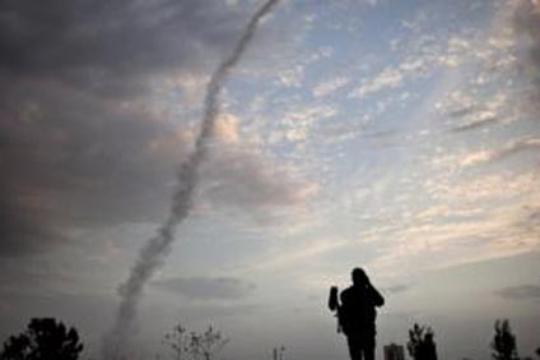
Israel appears to be positioning itself for a ground operation, perhaps as early as the night of Nov. 17. The Israeli Cabinet on Nov. 16 approved Defense Minister Ehud Barak’s request to call up 75,000 reservists, significantly more than during Operation Cast Lead in 2008-2009. The Israeli army meanwhile has also sought to strengthen its presence on the borders with Gaza. Primary roads leading to Gaza and running parallel to Sinai have been declared closed military zones. Tanks, armored personnel carriers, self-propelled artillery and troops continue to stream to the border, and many units already appear to be in position.
During Operation Cast Lead, the Israelis transitioned to the ground phase around 8:00 p.m. on Jan. 3, 2009. Going in during dark hours allows the IDF to take advantage of its superior night-fighting equipment and training, including the use of night vision goggles and thermal optics.
The Israeli air force remained active throughout the night of Nov. 16-17, striking at targets across the Gaza Strip including key Hamas ministries, police stations and tunnels near the border crossing with Egypt. The IAF reportedly carried out strikes in Rafah’s al-Sulan and al-Zahour neighborhoods, as well as east of the al-Maghazi refugee camp. According to IDF reports, the air force carried out a rapid and coordinated military strike, targeting approximately 70 underground medium-range rocket-launching sites in the less than an hour. The IDF claims direct hits were confirmed. The IAF will increasingly target Hamas militant defenses ahead of any ground invasion. Already the IAF has bombed militant defensive positions, particularly in the northern part of the Gaza Strip.
Meanwhile, Hamas and other militant factions in Gaza have been actively striking back at Israel. More than 80 rockets have been launched from Gaza over the past 24 hours. Of the rockets launched Nov. 17, approximately 57 landed in Israel. According to the IDF, a total of 640 rockets have been launched since Nov. 14, with 410 landing in Israel. A long-range rocket was fired from Gaza toward Tel Aviv at approximately 4:45 p.m. local time Nov. 17 but was successfully intercepted by the recently deployed Iron Dome anti-rocket defense system in the area. Hamas continues to target areas around Ashkelon, Ashdod and Beersheva, with the Iron Dome system intercepting five rockets over Ashkelon at 5:15 p.m. The majority of rockets launched from Gaza appear to be of shorter range than the Fajr-5. The IDF has stated its Iron Dome interceptors have so far successfully intercepted 90 percent of the rockets, though this may be an exaggeration.
One of the long-range rockets was intercepted by the newly installed Iron Dome battery in the Tel Aviv area. A Stratfor source has indicated that the rocket was not a Fajr-5, but was a locally manufactured long-range rocket in Hamas’ arsenal.
If militants in Gaza are now able to locally manufacture their own long-range rockets that can target Tel Aviv and other major Israeli cities, it would be a worrisome development for Israel. Thus far, Israel has been able to focus its efforts on limiting the supply of these rockets to Gaza through interdiction efforts, such as the alleged Oct. 23 strike on the Yarmouk arms factory in Sudan. But if Palestinian militants can manufacture long-range rockets in Gaza, it will be much more difficult for Israel to restrict Gaza’s inventory of these rockets. Beyond rocket launch sites and caches, which Israel is currently targeting with its airstrikes, it would need to target production sites and those who would be responsible for manufacturing the rockets.
Furthermore, it will be significantly harder for Israeli intelligence to form an accurate picture of the number of these rockets locally constructed in Gaza. We have already seen that Israeli intelligence likely did not anticipate how many long-range rockets had escaped its first wave of strikes, and the fact that Hamas may have been producing these weapons could explain Israel’s lack of complete information.
Hamas recognizes that these long-range rocket attacks have only increased the likelihood and intensity of an Israeli ground incursion. A significant ground force offers the Israelis the best chance of finding and neutralizing the factories making these long-range rockets as well as the shorter-range Qassams. Hamas and the other militants therefore are actively preparing their defenses for the anticipated incursion and are likely laying improvised explosive devices, setting up road blocks and defensive emplacements and sorting out their ranks and tasks.
Hamas has already announced that its Al Murabiteen units, consisting of five brigades spread across Gaza, will be concentrated in the border region to limit Israeli penetration into the Gaza Strip. Learning from Hezbollah’s example in 2006, special units of Hamas are relying heavily on tunnels to maintain communications. Should Israel be drawn into more densely populated areas of Gaza in pursuit of weapons storage and manufacturing facilities, Hamas has also reportedly prepared its suicide bombers, known as Istishadiyeen, to raise the cost for Israel in an urban battle.
“Update on the Israel-Gaza Conflict is republished with permission of Stratfor.”




































